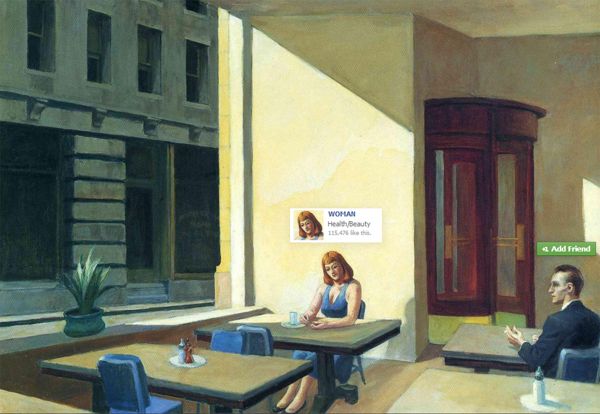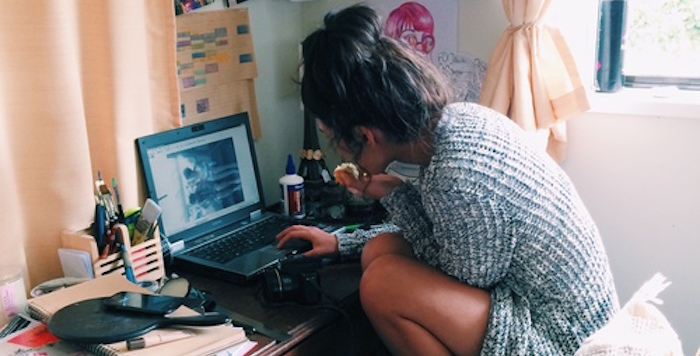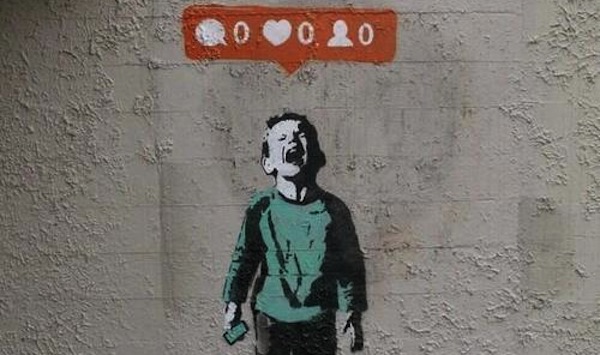The more attached I get to my phone, the more worried I get about my mental health.
Whether we like to admit it or not, social media has mischievously taken over our lives – assuming, of course, that our pre-smart phone existence during the late 90s and throughout the 2000s was peachy and fruitful and that we weren’t too busy causing and contributing to global warming, waging pointless wars and creating financial crises through our own economic incompetency.
Back to social media, though – the growing trend of online everything is swiftly rather than slowly shaping our lives and contributing to our adoption of peculiar behavior that would normally be considered socially deviant. Here’s why:
1. You “like” their picture/post and favorite their tweet, but you don’t talk to them in real life

We all have that bunch of online followers/friends who we avidly interact with virtually, but would avoid eye contact with in real life. You see them and your mind automatically starts thinking, “Walk away, walk away, walk away…” and you scurry past them without even throwing a casual “hi” in their direction, even though last night you totally bonded over the Breaking Bad tweet they retweeted.
I simply cannot shake off the irony of how social media, deemed a “social” platform to ease communication, is simply making us all the more socially awkward rather than facilitating real-life conversations.
2. You have the option to read and ignore

Social media platforms and apps like WhatsApp and Facebook Messenger give us the option to read a message and just casually ignore it. You have the immense power to read a message and reply to it eight hours later after mentally tormenting the person on the other side, making them believe they completely screwed over your relationship. In real life, you can’t just dismiss a comment and not reply with at least a shrug.
The power to simply ignore whatever we do not like or even feel like replying to online is quite unimaginably real, yet you cannot replicate it in real life. If someone directly asks you a question, you’re obliged to reply – unless you push them aside and start running away, but then you’ll be labelled as deeply disturbed.
Online, though, not replying simply means you’re either “playing things cool”, do not feel like talking to them now or are just too busy to carry on this conversation.
3. You could win a medal for your online stalking skills

You find yourself clicking away on their online profiles before even carrying a meaningful conversation with them in real life. Before you know it, you casually say, “Your friend’s cousin’s cat is so adorable! I love cats, too!” when you see them, only to be met with a deeply confused look that’s mixed with a tinge of fear.
We share so much of our lives online that it makes it very easy for someone else to creep on our profiles and get all the information they need without even uttering a single word in our direction.
4. You post pictures of your food/outfit/view and random strangers “like” them

Imagine how creepy it would be if a random passer-by backed up in their tracks, came back to your table, stared at your meal and said, “This looks so delicious, we should get some [insert best friend’s @name].” On Instagram, though, that is the norm. You get the idea.
Social media gives us the freedom to poke our curious noses into other people’s lives, just like they give us the liberty to brag about our own lives to virtual strangers – if this isn’t a bit unhinged, I don’t know what is!
5. You get to virtually unfriend/block/mute people

The satisfaction you get when that annoying wannabe politician with grandiosely ill-informed opinions is blocked from your newsfeed is indescribable. Hold on, though, you literally cannot do that in real life. The most you can do is file a restraining order, and that is only if they pose a real threat to your well-being, which I’m pretty sure their annoying posts really don’t.
I remember back when I was a kid and would daydream about holding a remote control to someone’s face and pressing “mute”, and now that childish thought has literally been embodied by Twitter – quite alarming, isn’t it? Realistically though, that feature does not exist in real-life interactions. It really is quite deranged how so much more powerful we are online when it comes to communication than we are in real life.
One last ending thought: It is not really about how powerful social media is, but rather how much power we ascribe to it. Sure, social media gives us a lot of liberties that we don’t really have in real life, but in turn it does take away some as well – a thought worth keeping in mind.
WE SAID THIS: Don’t miss Virtual Friends Vs. REAL Friends.


